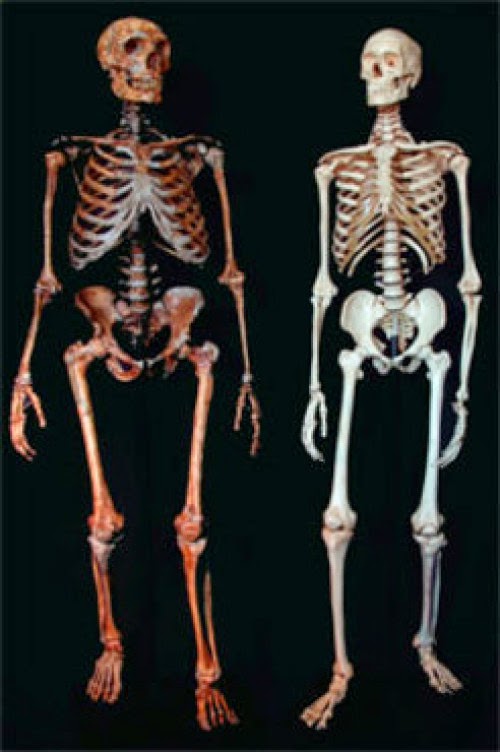 Modern Europeans are up to three times more variants in Neanderthal genes in the catabolism of lipids, Asians and Africans.
Modern Europeans are up to three times more variants in Neanderthal genes in the catabolism of lipids, Asians and Africans.
Although the Neanderthals disappeared, the fragments of its genome exist in modern humans. These common areas are unevenly distributed throughout the genome and in some areas are particularly enriched variants Neanderthals. An international research team led by Philipp Khaitovich the Max Planck Institute for Evolutionary Anthropology in Leipzig, Germany, and the Institute, CAS-MPG Partner Computational Biology in Shanghai, China conducted, showing that the DNA sequences between shared modern human and Neanderthal genes enriched specifically involved in the metabolic breakdown of fat. This exchange of genes is mainly observed among contemporary people of European origin and may have a selective person with variants of the Neanderthal advantage.
The researchers analyzed the distribution of the Neandertal genome variance in eleven modern human populations in Africa, Asia and Europe ancestry. They found that genes. During the synthesis of lipids, which involved a particularly high Neandertal variety among modern humans range of European origin, but not in Asians and Africans
(BD IT TALK) "These sequences show signs of recent positive selection," says Philipp Khaitovich the Max Planck Institute for Evolutionary Anthropology in Leipzig, Germany, and the CAS-MPG Partner Computational Biology in Shanghai, China Institute. "This may mean that give modern humans carry Neanderthal genotype conferred a selective advantage."
The analysis of the influence of variations in the treatment of lipid Neanderthal in modern humans, the researchers found, the latest evolutionary changes in the concentration and the expression of lipid metabolic enzymes in the brain of the man of European origin. ADVERTISING (BD IT TALK)
"We do not know what these changes in lipid levels are the brain, but the Neandertal variants could alter the composition of our brain has interesting implications," says Philipp Khaitovich. Further work is needed, however, comprehensively assess the potential functional consequences of these changes.
